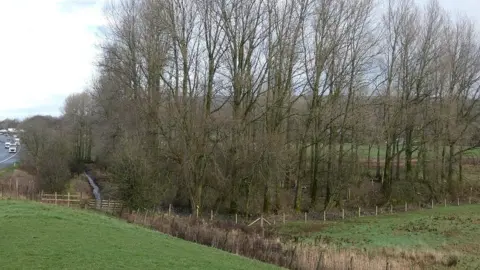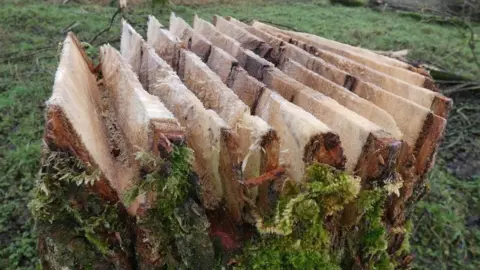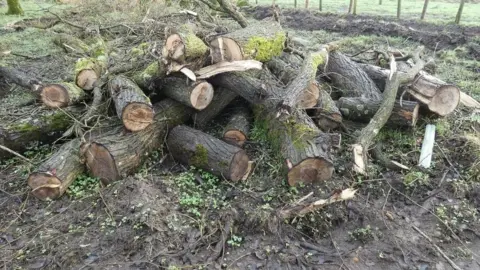'Unassuming' Cumbria M6 copse becomes wildlife haven
 Highways England
Highways EnglandAn "unassuming copse" next to a motorway has been turned into a "haven for wildlife" in an effort to boost the road's environmental credentials.
Burton Woods, near Burton-in-Kendal in Cumbria, was planted when the M6 was built in the late 1950s.
A Highways England (HE) spokesman said overgrown non-native poplar trees had given it low environmental value.
He said they were replaced by alder, willow, and birch trees and a range of bird boxes and mammal and bat habitats.
 Highways England
Highways EnglandThe project was part of an HE initiative to raise the environmental credentials of the country's motorways and major A roads and saw each poplar replaced with four trees or shrubs.
Felled trees were recycled on site and turned into bat roosts and bird nests, and deadwood piles were left to provide shelter for insects and small mammals.
HE's senior environmental specialist Dr Andrew Carr said with "more appropriate planting and more thoughtful and sensitive management, we've turned a rather unassuming copse dominated by poplar trees into a haven for wildlife".
 Highways England
Highways EnglandMark Wakeman, the project manager for contractors Ground Control, said the firm's arborists "had a lot of fun carving owl boxes and ledges, bird boxes, mammal houses and various bat features".
"It's a unique project and the the benefits will be realised for decades to come," he added.

Follow BBC North East & Cumbria on Twitter, Facebook and Instagram. Send your story ideas to [email protected].
